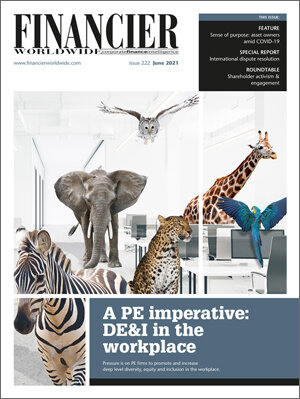Dual-use redefined: modernising EU export controls
June 2021 | FEATURE | GLOBAL TRADE
Financier Worldwide Magazine
In a world where threats seem to lurk around every corner, it is essential for authorities to take all reasonable steps – legislative and regulatory – to prevent potential perils becoming gruesome realities.
Among the mass of preventative measures currently underway across the globe is a revision of the European Union’s (EU’s) export controls on sensitive dual-use goods, materials, software and technologies legislation – dual-use being defined as “items which can be used for both civil and military purposes, including all goods which have non-explosive uses or assist in any way with the manufacture of nuclear weapons or other nuclear explosive devices”.
According to the European Commission (EC), a modernisation of the EU’s export controls regime will enhance the capacity to control trade flows in sensitive new and emerging technologies. The scope of what is considered a ‘dual-use item’ will also be broadened to include cyber surveillance technology that can be used for the commission of serious violations of human rights or international humanitarian law, or can pose a threat to international security or EU essential security interests.
In place since 2009, the German presidency of the European Council and representatives of the European Parliament have seen fit to modernise the EU’s current export control system for dual-use items – Regulation (EC) No 428/2009 – as it was deemed to be out of touch with changing technological, economic and political circumstances.
“A revised regulation on trade of dual-use items is an important contribution in making the EU fit for modern trade challenges,” believes Peter Altmaier, Germany’s federal minister for economic affairs and energy. “The new rules strike the right balance between strengthening the competitiveness of the EU, ensuring our security interests and promoting human rights.”
Systems upgrade: recasting Regulation 428/2009
The revised Regulation (EC) No 428/2009 is essentially a comprehensive systems upgrade that makes the existing EU dual-use export control system more effective with a series of improvements.
First, it introduces a novel ‘human security’ dimension so that the EU can respond to the challenges posed by emerging dual-use technologies – especially cyber surveillance technologies – that pose a risk to national and international security, including protecting human rights.
“All export regimes need to be kept relevant and valid and be regularly updated – a constant evolution essential to strengthening the EU’s role in peace, security and stability, as well as human rights.”
Second, it updates key notions and definitions, such as the definition of an ‘exporter’ to apply to natural persons and researchers involved in dual-use technology transfers.
Third, it simplifies and harmonises licensing procedures to allow the EC to amend – by ‘simplified’ procedure, i.e., a delegated act – the list of items or destinations subject to specific forms of control, thereby making the export control system more agile and able to evolve and adjust to circumstances.
Fourth, it enhances information-exchange between licensing authorities and the EC with a view to increasing transparency around licensing decisions.
Fifth, it coordinates and provides support for robust enforcement of controls, including enhancing secure electronic information-exchange between licensing and enforcement agencies.
Sixth, it develops an EU capacity-building and training programme for member states’ licensing and enforcement authorities.
Seventh, it provides for development of a structured relationship with the private sector through specific consultations of stakeholders by the relevant EC group of member states experts.
Finally, it aims to set up a dialogue with third countries to seek a level playing field at a global level.
“Thanks to the new rules, we will in the future be better equipped to allow legitimate trade to be carried out smoothly, but also to put an emphasis on control of certain technologies, especially cyber surveillance items, which can be misused in connection with human rights violations,” says Mr Altmaier. “Furthermore, we strengthen our common EU approach by providing for more ways in which member states can cooperate in the field of export controls.”
Strength, security and stability
All export regimes need to be kept relevant and valid and be regularly updated – a constant evolution essential to strengthening the EU’s role in peace, security and stability, as well as human rights.
“I warmly welcome this agreement to upgrade our controls on dual-use technologies,” says Valdis Dombrovskis, executive vice-president and commissioner for trade at the EC. “We now have robust export controls to mitigate against abuses of dual-use tech, and exporters will have to follow due diligence obligations.
“The EC will work now closely with member states and the European Parliament to implement the revised rules effectively. We will also interact closely with industry, which is the ‘first line of defence’ to guard against proliferators and other malevolent actors.”
© Financier Worldwide
BY
Fraser Tennant

